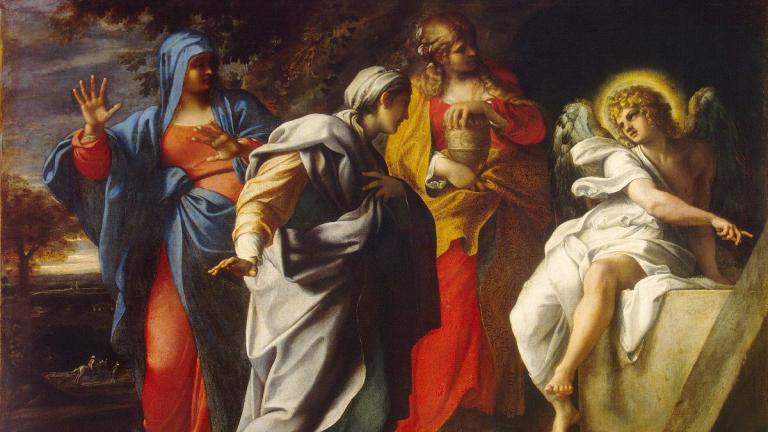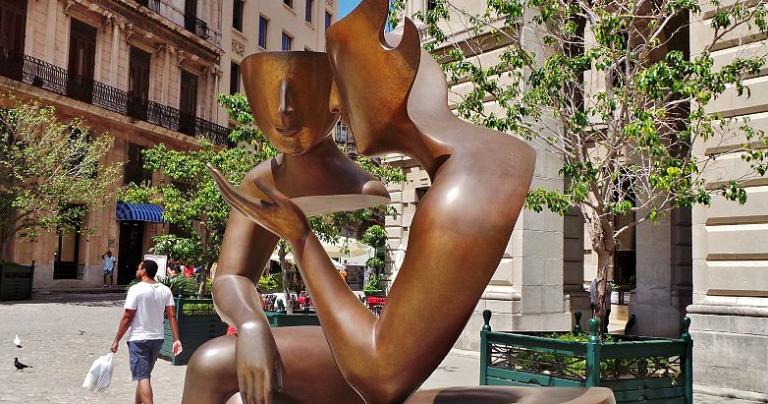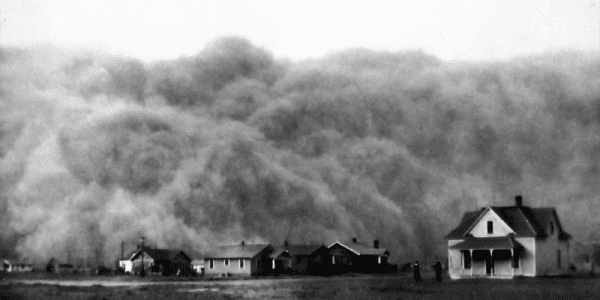Answers
1) The Greek word for “baptize” literally means “to dip or immerse.” In the New Testament, John the Baptist mentions three types of baptism: water, fire, and spirit (Matthew 3:11). Jesus mentions a fourth: earth baptism (Mark 10:34 talks about Jesus rising from the grave). These four types of baptism (being immersed in) seem to correspond to the classical elements of ancient Greece: earth, water, fire, and air.
2) The word for “spirit” can also mean “wind” or “breath.” What was the connection between these three words? To understand that we have to think like an ancient man using the knowledge and information available to him at the time. Wind and breath have something in common, they are both air in motion. What does our ancient man know about air? Unlike the other three elements (earth, water, and fire), air is invisible. It is necessary for life (stop breathing and you die). And birds fly through the air. It would be a mystery as to why this invisible element would move in the form of wind and even more of a mystery as to why we continue to breathe when we sleep. What force moved our breath while we slept or moved the wind over the earth? Where did that force come from? Using logic and reason the ancient man would conclude that a mysterious, invisible, life-sustaining element like air came from God and would name the force that moved it “spirit.” Using this hypothesis, a simple word search of the Bible for the words “spirit,” “wind,” and “breath” reveals the connection and the conclusion that “spirit” was defined as the force that moved the air. Here are some examples:
- “And after he said this, he breathed on them and said, ‘Receive the Holy Spirit’ ” (John 20:22).
- “For all the while my breath [is] in me, And the spirit of God in my nostrils” (Job 27:3).
3) Abram didn’t cut up the birds because birds fly through the air and the air is connected to God’s spirit. Birds are often considered sacred in the Bible due to this connection. For example, God sends a plague on the starving Israelites when they eat the quail that entered their camp (Numbers 11:31–3).
4) God delivered his Holy Spirit to Jesus in the form of a dove (Matthew 3:16).
5) The apostles were visited by the Holy Spirit: “Suddenly a sound like a violent wind blowing came from heaven and filled the entire house where they were sitting” (Acts 2:2).
Another use of spirit
The logical connections between spirit/wind/breath didn’t end with birds. Our ancient man also realized that our words were formed with our breath and therefore the spirit force could form words:
- “All of them were filled with the Holy Spirit, and they began to speak in other languages as the Spirit enabled them” (Acts 2:4).
- “For it is not you speaking, but the Spirit of your Father speaking through you” (Matthew 10:20).
- “Whenever you are arrested and brought to trial, do not worry beforehand about what to say. Just say whatever is given you at the time, for it is not you speaking, but the Holy Spirit” (Mark 13:11).
- “And they having prayed, the place was shaken in which they were gathered together, and they were all filled with the Holy Spirit, and were speaking the word of God with freedom” (Acts 4:31).
- “In the beginning was the Word” (John 1:1).
According to the Online Etymology Dictionary, prior to 1300 CE “spirit” was related to “to breathe” and “to blow.” When ancient writers spoke about “spirit” they meant the godly force that moved the mysterious, invisible, life-sustaining element known as “air.” To read it any other way would be to change the meaning of their words.
If you wish to continue this study you might consider the relationship between the elements of air and water shown in the Bible. For example, why do “unclean spirits seek dry places” (Matthew 12:43)? Why did the pigs (who are excellent swimmers) drown when they had the evil spirits in them (Mark 5:13)? Does this have anything to do with being immersed in water at baptism?
— Coco Chanel (paraphrased)
.













